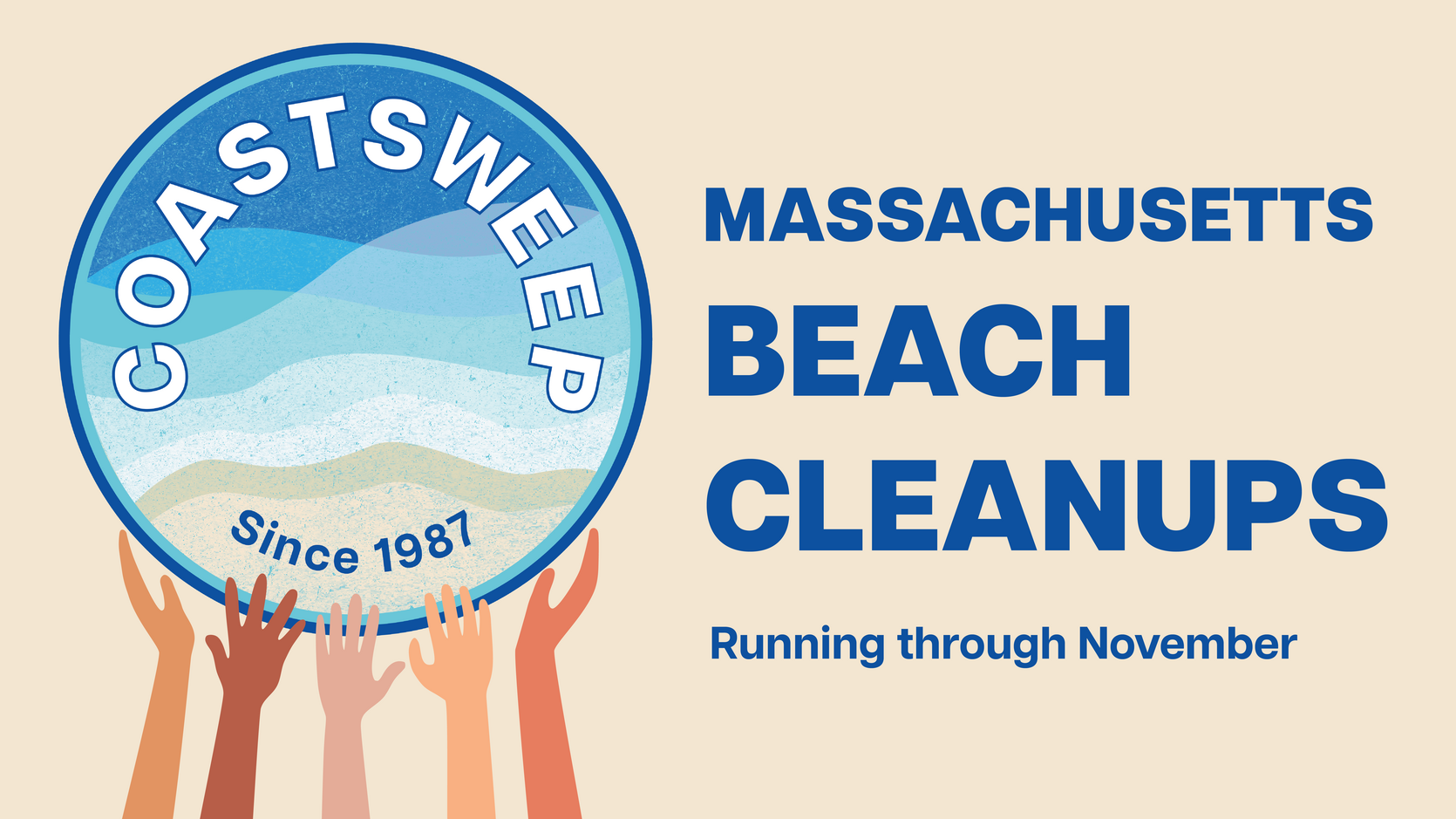Press Release: 9/16/2025
Healey-Driscoll Administration Announces the 2025 COASTSWEEP Beach Cleanup
Volunteers of all ages invited to participate in statewide initiative to remove trash and debris from coastal areas
FOR IMMEDIATE RELEASE:
9/15/2025
MEDIA CONTACT
Anne Donovan, Communications Manager
Phone
Call Anne Donovan, Communications Manager at (617) 890-9140
Online
Email Anne Donovan, Communications Manager at anne.donovan@mass.gov

BOSTON — The Healey-Driscoll Administration today announced that Saturday, September 20, is the start of the 2025 COASTSWEEP season. People are encouraged to volunteer at one of the dozens of cleanup events planned along the coast. These events, organized by the Massachusetts Office of Coastal Zone Management (CZM), will run until early November. Since 1987, more than 111,000 COASTSWEEP volunteers have removed more than 1.4 million pounds of marine debris and other trash from Massachusetts beaches, lakes, rivers, and the seafloor.
“It is up to all of us to care for our coastlines, which welcome millions of visitors every year. They also provide critical habitats for shorebirds and marine species. COASTSWEEP is a simple and fun way for all of us to care for our beaches,” said Energy and Environmental Affairs Secretary Rebecca Tepper. “Last year alone, over 3,000 volunteers removed nearly 20,000 pounds of trash from more than 225 miles of shoreline. This year, let’s work together to beat those numbers and further protect our environment.”
“The Office of Coastal Zone Management is proud to continue the COASTSWEEP tradition that began in 1987,” said CZM Director Alison Brizius. “This work wouldn’t be possible without the countless dedicated volunteers who are committed to keeping Massachusetts’ coast clean and healthy. Here’s to another great year!”
COASTSWEEP is part of the International Coastal Cleanup, organized by Ocean Conservancy, and draws hundreds of thousands of volunteers to coastal cleanups in 118 countries worldwide. In addition to removing trash, COASTSWEEP volunteers tally the items found. This information is entered into Ocean Conservancy’s international marine debris database, where it helps researchers and policymakers better understand the sources of global marine debris and develop solutions for prevention.
Marine debris is more than an eyesore. It poses serious threats to wildlife and humans. Animals can become entangled in or choke on debris, and tiny pieces of plastic enter the water column and food chain. People can also step on sharp objects on the beach and boat propellors can get jammed.
Data collected in 2024 through COASTSWEEP showed that 3,224 volunteers removed 18,981 pounds of trash from 195 sites, with a total of 71,674 pieces of marine debris collected along 228 miles of shoreline. As in past years, cigarette butts were the most common item found (14,113 total), followed by plastic pieces (9,720). Many other plastic items were removed and cataloged—including food wrappers, bottles and caps, straws, and foam packaging—for a total of 35,738 plastic and foam items tallied.
A great way to get involved in COASTSWEEP is to organize a cleanup. All supplies (bags, gloves, data cards, pencils, etc.) are provided free of charge, and cleanups can be scheduled at your convenience. Individuals can also volunteer at a scheduled cleanup. To organize or join a cleanup, check out the COASTSWEEP website or email coastsweep@mass.gov.
COASTSWEEP 2025 sponsors are the Executive Office of Energy and Environmental Affairs, Office of Coastal Zone Management, Department of Conservation and Recreation, Ocean Conservancy, and Tronex, a personal protective equipment company that provided gloves for the cleanups.
The Massachusetts Office of Coastal Zone Management (CZM) is the lead policy and planning agency on coastal and ocean issues within the Executive Office of Energy and Environmental Affairs. Through planning, technical and grant assistance, and public information programs, CZM seeks to balance the impacts of human activity with the protection of coastal and marine resources. The agency’s work includes helping coastal communities address the challenges of storms, sea level rise, and other effects of climate change; working with state, regional, and federal partners to balance current and new uses of ocean waters while protecting ocean habitats and promoting sustainable economic development; and partnering with communities and other organizations to protect and restore coastal water quality and habitats.